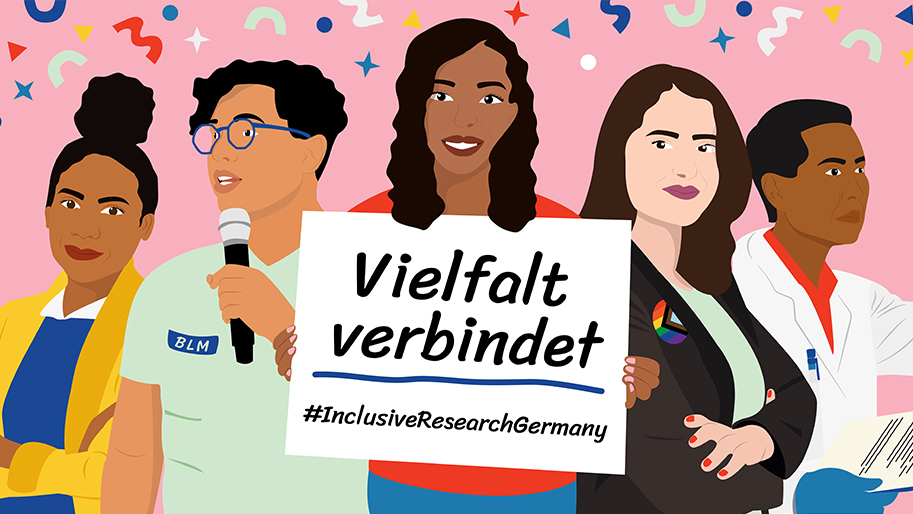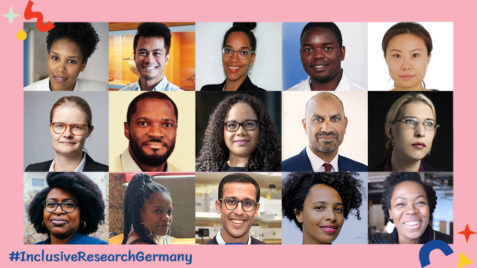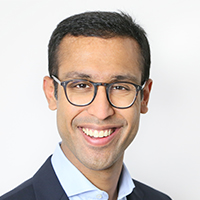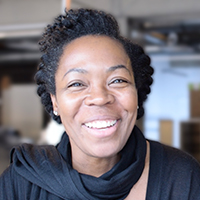Diversity in Focus

With the campaign #InclusiveResearchGermany, the German Center for Research and Innovation (DWIH) New York has taken up the discussion about diversity and discrimination.
After George Floyd, a Black man, was violently killed during an arrest in Minneapolis in May 2020, people across the U.S. took to the streets to protest racism under the slogan “Black Lives Matter.” In universities and research communities across the U.S. and globally, the events sparked a broad debate about racism in society, culminating in the question of how to overcome discrimination and structural inequality.
“What does this mean for our work?” DWIH Communications Officer Jarred Johnson asked himself. In reflecting on their work representing the German science community, the DWIH New York Team recognized that minorities including those from Black, Hispanic and Asian backgrounds or people from the LBGTQ community had been underrepresented as presenters at events or as interviewees in their newsletter, for example. “We wanted to bring to light the true diversity of the German science and innovation community,” Johnson says.
Thus the idea for a Twitter campaign was born. The communications expert tracked down 30 inspiring people who stand for diversity: including people of color, those with immigration backgrounds or from the LGBTQ community. Startup founders were among them, as were researchers, professors and politicians. The DWIH New York used their Twitter channel to highlight the work of these 30 individuals using the hashtag #InclusiveResearchGermany.

Resonance of the Campaign
The DWIH New York’s German-American audience responded very positively to the initiative. The tweet that launched the campaign was the most successful tweet in the organization’s history, receiving nearly 400 clicks, likes, and retweets. Such a response demonstrates the DWIH New York network’s desire to see diversity represented and to engage with content that is timely, engaging and people-oriented. “As the campaign went on, people emailed us to thank us for the initiative and sent us recommendations for other people we could feature,” Johnson says.
But the initiative also went beyond the Twitter campaign. The DWIH New York put together a digital folder for its many supporter institutions, including the many German universities with offices in the United States. Among other things, information on topics such as diversity and inclusion in science is collected there. These resources include contact information for diversity and inclusion advisors. “We want to use it to give other German-American organizations ideas on how they can accelerate their own work with the topic,” Johnson says.
The DWIH additionally partnered with the DAAD New York Office to organize a training session on diversity and inclusion. A Diversity Coach demonstrated the different histories and present-day iterations of racism in the U.S. and Germany during the workshop. In small groups, the participants then worked out how they could better address the issue of diversity in their organizations in the future.
The Shift Toward Greater Representation
The training and the whole initiative have contributed to continued change at the DWIH New York. In the future, the DWIH plans to pay even more attention to diversity when selecting speakers for events. And the topic will also play a greater role in communications in the future. Jarred Johnson emphasizes, “Our work should aim to bring the strengths of German and American collaboration and innovation culture to a diverse audience. To be successful, we need to represent and celebrate the diversity of the scientific community.”
Written by Hendrik Bensch
In Their Own Words:

"As a German with Indian roots, I have a natural connection to the topic of diversity and inclusion. I have experienced time and again in different situations, whether as a doctor, scientist or founder, that progress and innovation are only possible through diversity and inclusion. The diversity of people, opinions and lifestyles is enriching and essential for finding the best possible answers to the challenges of our time. That is why I support the important initiative #InclusiveResearchGermany."Dr. Mridul Agrawal, founder of iuvando Health and Postdoctoral Fellow at Harvard Medical School

"Because I am in regular contact with immigrant women through my WomenLoop program, I thought it was especially important to be visible as a mother, immigrant, and experienced IT manager. For women who want to work in IT, I think you can never show enough diversity - regardless of background, marital status or age. All bring certain skills to the table and should feel entitled to make a positive contribution."Dr. Nakeema Stefflbauer, Founder of Frauenloop
This article has been published in the print version of the DWIH Annual Report 2020. You can download the PDF file here.
